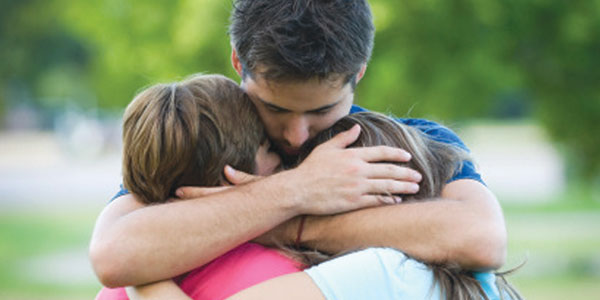
Muchas situaciones en la vida pueden hacer que una persona se enfrente a un duelo. La muerte de un ser querido. Un divorcio complicado u otra separación de alguna relación. Perder un trabajo. Un aborto involuntario.
Existen muchas maneras de vivir el duelo. Como también hay muchas maneras de superar el dolor. La forma de lidiar con esto depende de usted.
De acuerdo a los psicólogos, no hay una respuesta común a la pérdida. De hecho, la manera en que enfrente una situación específica depende de muchos factores, incluyendo su personalidad, estilo y experiencias de vida. Su período de duelo puede ser corto para algunos tipos de pérdida y más largo para otros. Pero recuerde, si su período de duelo es corto, eso no significa que no le importa lo que ha perdido.
El duelo puede producir muchas emociones, incluyendo la ira, el miedo, la ansiedad, la tristeza, la culpa y el shock. Muchas personas también sufren de síntomas físicos como náuseas, pérdida o aumento de peso, dolores e insomnio. Para hacer frente a los síntomas emocionales y físicos provocados por el duelo, busque el apoyo de los que ama y enfrente sus sentimientos. Para despejar su mente y su cuerpo de la situación de duelo, trate de encontrar una actividad que le haga sentir mejor y le de un sentido de plenitud.
A veces, sin embargo, necesita enfrentarlo solo. Si usted siente ganas de llorar sin que nadie lo vea, debe encontrar un lugar privado donde pueda dejar que sus emociones fluyan y expresar cómo se siente. Si no quiere compartir cómo se siente con los demás, entonces no lo haga. Lo más importante es comprenderse a si mismo y hacer lo que le haga sentir cómodo, incluso si eso significa sufrir en privado.
Si siente que no está progresando en el proceso de duelo, busque ayuda profesional, para que pueda seguir adelante con su vida. Es importante recordar que cómo lidiar con el dolor es una elección totalmente personal. Pero también es importante tener esto en mente: Lo más importante del proceso de duelo es que se sienta mejor cuando lo haya afrontado.
___________________________________________________________________________________________________________
Grieving and coping with grief: It’s all personal
Commentary by Chara
Many situations in life can cause a person to grieve. The death of a loved one. A messy divorce or other relationship breakup. Losing a job. A miscarriage.
And there are many ways to grieve. There also are many ways to cope with grief. How you cope depends on you.
As psychologists have stated, there isn’t a common response to loss. Indeed, the way you grieve about a specific situation depends on many factors, including your personality, lifestyle and life experiences. Your grieving period might be short for some types of loss. It might be longer for other types. But remember, if your grieving period is short, that doesn’t mean you don’t care about what you’ve lost.
Grieving can produce many emotions, including anger, fear, anxiety, sadness, guilt and shock. Many people also suffer from physical symptoms, such as nausea, weight loss, weight gain, pains and insomnia. To cope with your emotional and physical symptoms of grief, look for support from those you love and face your feelings. And to try to separate your mind and body from the grieving situation, try to find an activity that makes you feel better and gives you a sense of fulfillment.
Sometimes, however, you need to grieve alone. If you feel like crying alone, then find a private spot where you can let your emotions flow and express how you feel. If you don’t want to share how you feel with anyone, then don’t do it. The most important thing is to understand yourself and do whatever makes you feel comfortable, even if it means grieving in private.
If you feel that you’re not making progress in the grieving process, look for professional help, so you can move forward with your life. Yes, it’s important to remember that how you cope with grief is a deeply personal choice. But it’s also important to keep this in mind: The most important thing about the grieving process is that you feel better when you come out on the other side of it.









